SACCAN is a system currently sited at the Operations Room of Canarias ACC which main purpose is to provide ADS and CPDLC services.
SACCAN is a replica of a larger system called ECA (ADS/CPDLC Control Station) that Aena used for trials, experimentation, evaluation and validation of ADS, CPDLC, and other advanced data link applications and functions. SACCAN specifications in fact included ECA specifications in its Annex. (See below ATC Magazine nº 14: ECA – Estación de Control ADS-SSR).
Aena used ECA during February and March 1998 to participate in ADS Europe Trials (See below ATC Magazine nº 16 and nº17: ADS Europe)
ECA, and therefore SACCAN, incorporate the philosophy, algorithms and functions of the ADS-SSR Integration Study carried out by Aena in 1994 (See below ATC Magazine nº8: La Vigilancia Dependiente Automática (ADS) (II) ).
The experience and lessons learned during the PRODAT/PROSAT Programme of the European Space Agency (ESA) in which Spain participated were also taken on board during the drafting of ECA specifications.
For information on PRODAT/PROSAT, see below ATC Magazine nº6: El Servicio Móvil Aeronáutico por Satélite (II) and ICAO Bulletin of February 1989:The PRODAT/PROSAT data links succeeded in controlling a jet aircraft
D. Diez, participated in PRODAT/PROSAT Programme, directed the ADS-SSR Integration Study of Aena, directed and drafted the Technical and Functional Specifications of ECA, participated in the ADS Europe Trials, and finally participated in the drafting of the Technical and Functional Specifications of SACCAN.
For detailed information on SACCAN see below ATC Magazine nº 23: SACCAN (I), ATC Magazine nº24: SACCAN (II) and ATC Magazine nº25: SACCAN (III)
From September 1998, D. Diez, directed and coordinated the Operational Evaluation/Implementation of SACCAN
His main specific activities were:
a) Draft SACCAN Operational Evaluation/Implementation Plan, Trials Operational Evaluation Manuals and Trials Forms, and Trials Guidance Material;
b) Co-ordinate and Supervise SACCAN installation and trials;
c) Prepare and give presentations and training courses on SACCAN to Canarias ACC controllers and technicians;
d) Attend as Secretary the meetings of GEOACAN (Grupo de Evaluación/Implementación Operacional ADS/CPDLC Canarias);
e) Identify candidate Airlines and aircraft, establish participation agreements and aircraft connection schedule, and co-ordinate airlines participation;
f) Co-operate and co-ordinate with other Administrations involved in operations or trials with FANS 1/A aircraft (U.K., France, USA, etc.);
g) Make presentations to Airlines on SACCAN and its operational benefits aiming to encourage aircraft equipage and participation;
h) Make presentations to adjacent ATS Service Providers on SACCAN and its operational benefits aiming to encourage homogeneous regional implementation; and
i) Store and analyze trials data, prepare and present results, identify errors and draft corrective specifications to improve SACCAN.
Note: Operational evaluation trials with real traffic took place from 15 August 2002 till 19 December 2006. More than 120 air traffic controllers and 80 aircraft from Lufthansa, Air France, Lan Chile and TAM, participated.
Click to see SACCAN SECOND PHASE OPERATIONAL TRIALS GUIDANCE MATERIAL
Click to see Aena APRECIATION LETTER
Click bellow to see ATC Magazine article on SACCAN:
ATC Magazine Nº 23 WINTER 99
ATC Magazine Nº 24 SPRING 2000
ATC Magazine Nº 25 SUMMER 2000
A presentation was made at an ICAO CNS/ATM Seminar in Bogota:
ICAO BOGOTA CNS/ATM IMPLEMENTATION SEMINAR
BOGOTA, COLOMBIA, 10-14 SEPTEMBER 2001
CENTRO DE ESTUDIOS AERONAUTICOS, CEA
Presentations by D. Diez:
- “ADS/SSR INTEGRATION”
- “SACCAN (ADS/CPDLC SYSTEM FOR THE CANARY ISLANDS)”
The seminar was attended by more than 200 participants mainly from the CAR/SAM Region
Below first slide of the SACCAN Power Point presentation:
Other SACCAN presentations made:
JUNE 2000
On 30 June 2000, at SENASA Training Center in Madrid, and to the 12th COURSE OF AIR TRAFFIC CONTROLLERS, D. Diez gave a conference on THE ROLE OF SATELLITES IN ATC, including the following presentations:
- ADS-SSR Integration;
- ADS-SSR Control Station (ECA);
- SACCAN: ADS/CPDLC System for the Canary Islands; and
- CNS/ATM Cost/Benefit Analysis for Spain.
OCTOBER 2000
On 11 October 2000, at EUROCONTROL HQ, Brussel, to the ADS-C User Forum, D. Diez made the following presentation:
SACCAN: ADS/CPDLC System for the Canary Islands
APRIL 2005
On 26 April 2005, at the FANS1/A (ADS&CPDLC) OPERATIONAL IMPLEMENTATION WORKSHOP at Las Palmas, Canary Islands, Spain, D. Diez made the following presentations:
SACCAN (Canary Islands ADS/CPDLC System); and
ADS&CPDLC Operational Evaluation and Implementation Plan
Click to see WORKSHOP REPORT
Click below to see other SACCAN related articles referred above:
ATC Magazine Nº 14 OCTOBER / DECEMBER 1997
Estación de Control ADS-SSR (ECA) ADS-SSR Control Station (ECA)
ATC Magazine Nº 16 APRIL / JUNE 1998
ATC Magazine Nº 17 JULY / SEPTEMBER 1998
ATC Magazine Nº 8 APRIL / JUNE 1996
ATC Magazine Nº 6 OCTOBER / DECEMBER 1995
ICAO Bulletin FEBRUARY 1989
PRODAT/PROSAT data links successful in controlling jet flight
Boletín OACI FEBRERO 1989
Los enlaces de datos PRODAT/PROSAT logran controlar el vuelo de un reactor
Bulletin OACI FEVRIER 1989
Premier vol controlé via une liaison de données par satellite PRODAT/PROSAT
(To be continued)

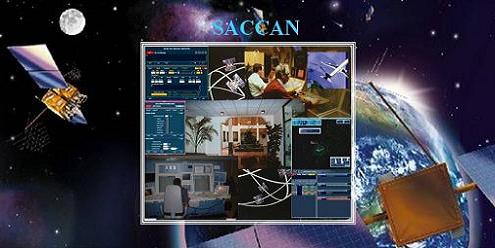
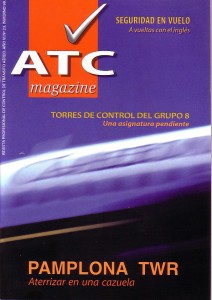
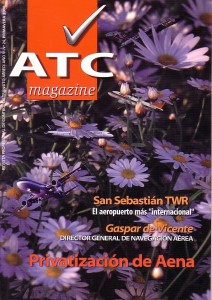




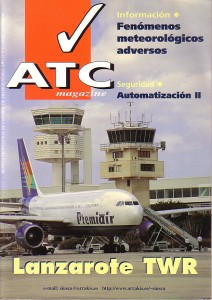
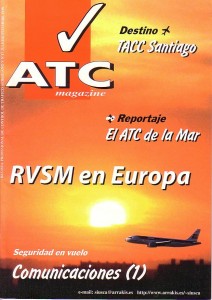
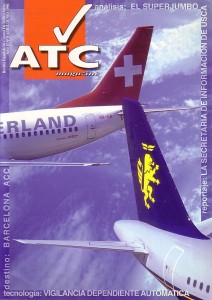
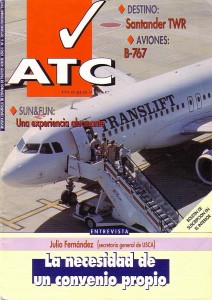
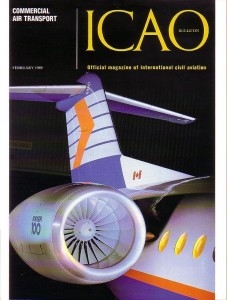
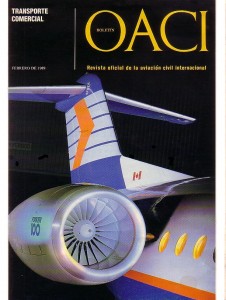
Everything is very open with a clear description of the challenges.
It was truly informative. Your site is very helpful.
Thanks for sharing!